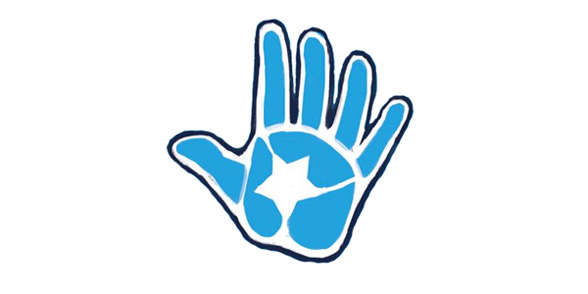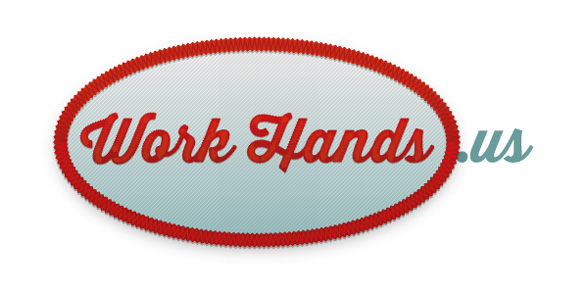Urban Impact Entrepreneurs Are Out There (Trust Us)

Who will you meet?
Cities are innovating, companies are pivoting, and start-ups are growing. Like you, every urban practitioner has a remarkable story of insight and challenge from the past year.
Meet these peers and discuss the future of cities in the new Meeting of the Minds Executive Cohort Program. Replace boring virtual summits with facilitated, online, small-group discussions where you can make real connections with extraordinary, like-minded people.
Urban innovation isn’t just coming from government or large companies. There’s a real movement of entrepreneurs looking to solve problems in their own communities. These urban impact entrepreneurs are creative and nimble – and have the ability to scale their innovations across cities.
Tumml, the urban ventures accelerator, issued an open call for applications from entrepreneurs across the country in April. We were overwhelmed by the response – both in terms of quantity and quality – and we’re proud to announce the five companies we’ve selected for our first cohort.
Tumml’s 2013 summer cohort
The Tumml cohort is comprised of early stage companies leading the charge in urban innovation. Please say hello to Tumml’s new class of urban impact entrepreneurs:
 Corral makes your urban commute easier and faster.
Corral makes your urban commute easier and faster.
 Earth Starter makes all-in-one garden systems that help city dwellers grow food and flowers in small spaces by removing the guesswork.
Earth Starter makes all-in-one garden systems that help city dwellers grow food and flowers in small spaces by removing the guesswork.
 HandUp is a mobile donation platform for the homeless and other neighbors in need.
HandUp is a mobile donation platform for the homeless and other neighbors in need.
 KidAdmit provides an easy, efficient way to apply to multiple preschools online and manage the preschool admission process – which can be so daunting in cities.
KidAdmit provides an easy, efficient way to apply to multiple preschools online and manage the preschool admission process – which can be so daunting in cities.
 WorkHands is a blue collar online identity service that makes it easier to find work in the trades.
WorkHands is a blue collar online identity service that makes it easier to find work in the trades.
These five companies will spend the next three-and-a-half months working in Tumml’s office space in downtown San Francisco, receiving mentorship from a group of accomplished urbanites (like the Director of Public Policy at Airbnb and the Chief Innovation Officer of San Francisco) and $20,000 in seed funding.
Takeaways
While Tumml is only hosting a small cohort of companies, we are excited by the energy and diversity of all the urban innovators who applied to our program. They are working on a wide variety of topics, but three themes really stand out to us:
- Small business services: Entrepreneurs developing some product or service that specifically targets and supports urban small businesses;
- Mobility: Entrepreneurs developing some product or service that makes getting around cities simpler and safer; and
- Local food: Entrepreneurs developing some product or services that makes it easier to grow or access local food.
To some extent, we attribute the strong representation in these three areas to the fact that there are already some success stories in these sectors (think: Fundrise, Uber, Revolution Foods, etc). This makes it easier for some entrepreneurs to envision starting companies of their own in a relatively new industry.
In addition to the variety of sectors represented, we also see some interesting demographic trends:
- 48 percent of the applicants have a female founder or co-founder. We can only speculate about why this number is so high (according to the Kauffman Foundation, only 35 percent of US startup business owners are women). But, at least anecdotally, our impression is that many women entrepreneurs are particularly excited about solving problems they have experienced personally – and what problems can a person know better than the ones in his or her own city?
- 40 percent of applicants are working on products or services specifically targeted at underserved communities within our cities. This is incredibly exciting for us. We often hear concerns that the sharing economy and other urban innovations are leaving behind the people who could benefit most from their use (ridesharing, short-term housing, etc). We are heartened to see this next wave of urban innovators embracing the responsibility (and the market opportunity) of targeting some of our cities’ overlooked residents.
Intrigued by these statistics? With so many pressing problems in cities, there’s a real role for enterprising entrepreneurs to tackle these issues. So join the movement and build your own urban impact startup!
Discussion
Leave your comment below, or reply to others.
Please note that this comment section is for thoughtful, on-topic discussions. Admin approval is required for all comments. Your comment may be edited if it contains grammatical errors. Low effort, self-promotional, or impolite comments will be deleted.
Read more from MeetingoftheMinds.org
Spotlighting innovations in urban sustainability and connected technology
Middle-Mile Networks: The Middleman of Internet Connectivity
The development of public, open-access middle mile infrastructure can expand internet networks closer to unserved and underserved communities while offering equal opportunity for ISPs to link cost effectively to last mile infrastructure. This strategy would connect more Americans to high-speed internet while also driving down prices by increasing competition among local ISPs.
In addition to potentially helping narrow the digital divide, middle mile infrastructure would also provide backup options for networks if one connection pathway fails, and it would help support regional economic development by connecting businesses.
Wildfire Risk Reduction: Connecting the Dots
One of the most visceral manifestations of the combined problems of urbanization and climate change are the enormous wildfires that engulf areas of the American West. Fire behavior itself is now changing. Over 120 years of well-intentioned fire suppression have created huge reserves of fuel which, when combined with warmer temperatures and drought-dried landscapes, create unstoppable fires that spread with extreme speed, jump fire-breaks, level entire towns, take lives and destroy hundreds of thousands of acres, even in landscapes that are conditioned to employ fire as part of their reproductive cycle.
ARISE-US recently held a very successful symposium, “Wildfire Risk Reduction – Connecting the Dots” for wildfire stakeholders – insurers, US Forest Service, engineers, fire awareness NGOs and others – to discuss the issues and their possible solutions. This article sets out some of the major points to emerge.
Innovating Our Way Out of Crisis
Whether deep freezes in Texas, wildfires in California, hurricanes along the Gulf Coast, or any other calamity, our innovations today will build the reliable, resilient, equitable, and prosperous grid tomorrow. Innovation, in short, combines the dream of what’s possible with the pragmatism of what’s practical. That’s the big-idea, hard-reality approach that helped transform Texas into the world’s energy powerhouse — from oil and gas to zero-emissions wind, sun, and, soon, geothermal.
It’s time to make the production and consumption of energy faster, smarter, cleaner, more resilient, and more efficient. Business leaders, political leaders, the energy sector, and savvy citizens have the power to put investment and practices in place that support a robust energy innovation ecosystem. So, saddle up.






0 Comments